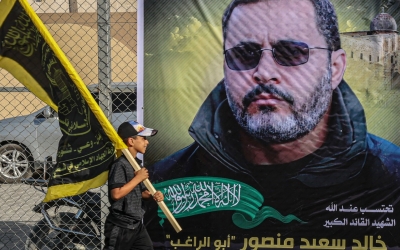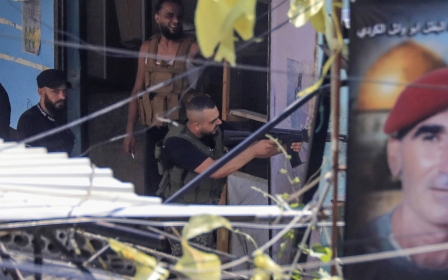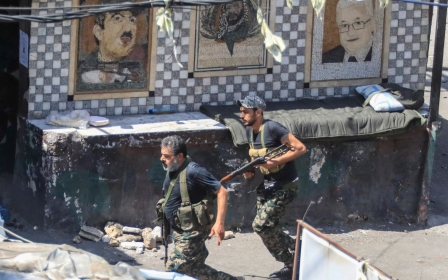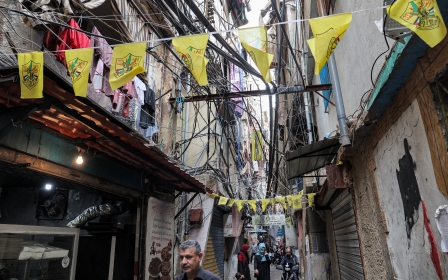Lebanon: Four killed in fresh Palestinian clashes in Ain al-Hilweh refugee camp
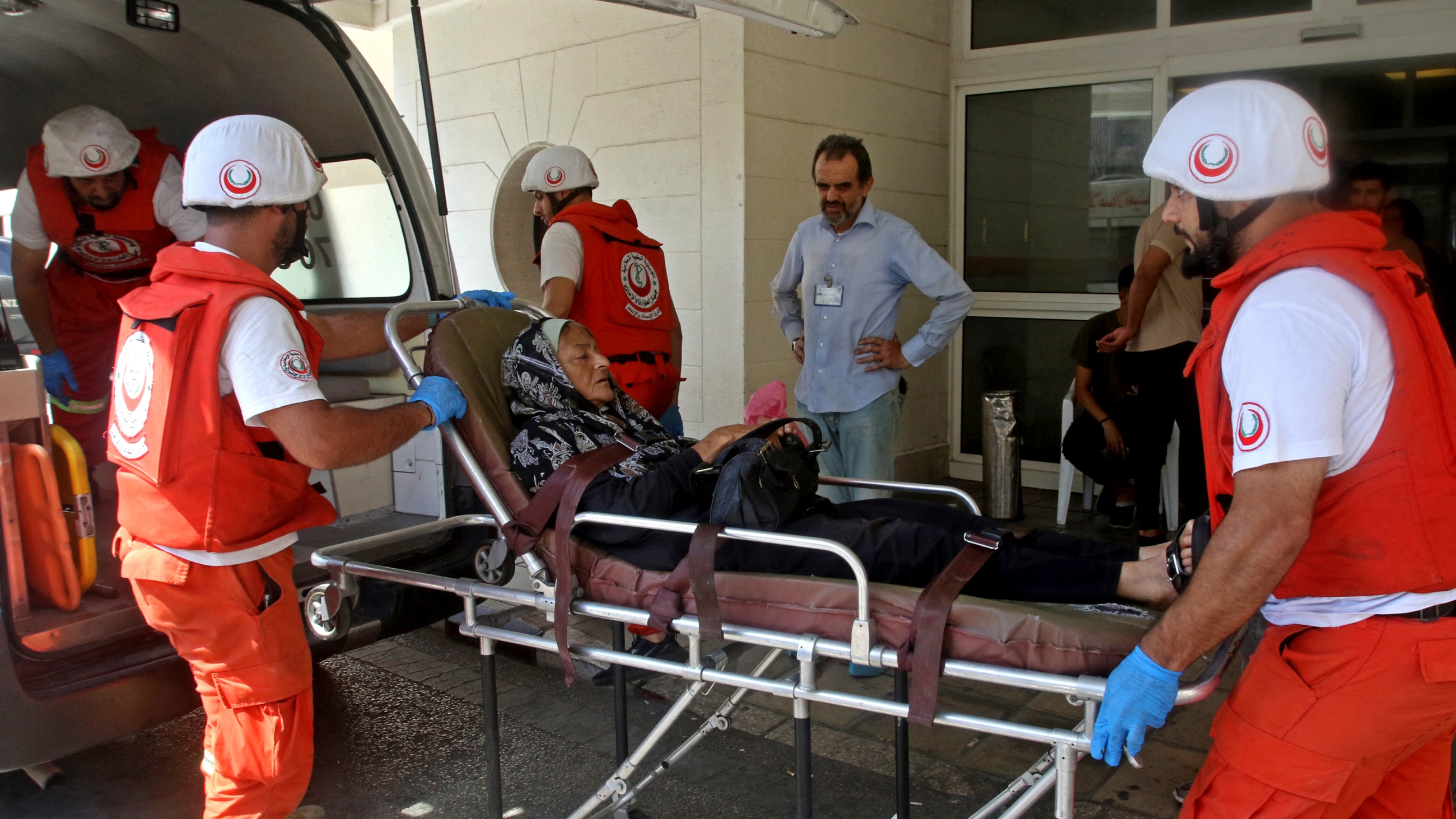
Four people were killed as clashes between Palestinian groups returned to a Lebanon refugee camp on Saturday, according to the official Lebanese National News Agency (NNA).
Small armed factions in Saida's Ain al-Hilweh refugee camp exchanged fire on Thursday night with members of the dominant Fatah movement.
A ceasefire was announced on Friday to end the fighting, which left at least 20 people wounded.
However, heavy clashes returned to the camp alleyways on Saturday morning, killing a member of Fatah, a member of the Young Muslims group and a civilian, NNA reported.
It added that dozens of people have been wounded.
New MEE newsletter: Jerusalem Dispatch
Sign up to get the latest insights and analysis on Israel-Palestine, alongside Turkey Unpacked and other MEE newsletters
The latest violence comes more than a month after the same groups fought similar clashes, leaving 11 people killed and 40 others wounded.
Tensions in July spiked following the failed assassination attempt on a senior member of a local rival of Fatah, which controls security in the camp.
Abu Sheref el-Armoushi, a senior Fatah commander in the camp, was killed along with four of his guards in what appeared to be a retaliatory ambush for the failed assassination attempt.
Subsequent clashes included the use of heavy machine guns, grenades and shoulder-fired missiles in the densely populated camp.
The Palestinian Joint Action Committee, an umbrella group including Palestinian factions in Lebanon, announced an end to the fighting after three days of clashes.
It also announced the creation of a committee to present those responsible for Armoushi's death to justice, a measure that has not been enforced since.
Ain al-Hilweh is located in Saida in southern Lebanon and is the largest Palestinian refugee camp in the country. It houses a population of nearly 80,000 people who live in an area of just 1.5 sqkm.
More than 480,000 registered Palestinian refugees are living in 12 camps across Lebanon.
Security and governance inside the camps are the responsibility of Palestinian factions, mainly Fatah.
Lebanese forces do not intervene in security matters within the camps but control checkpoints leading to them.
Clashes sometimes occur between Fatah and activists from small armed groups who control streets and neighbourhoods in the camp and who push Fatah activists back from some checkpoints in the area.
Middle East Eye delivers independent and unrivalled coverage and analysis of the Middle East, North Africa and beyond. To learn more about republishing this content and the associated fees, please fill out this form. More about MEE can be found here.


